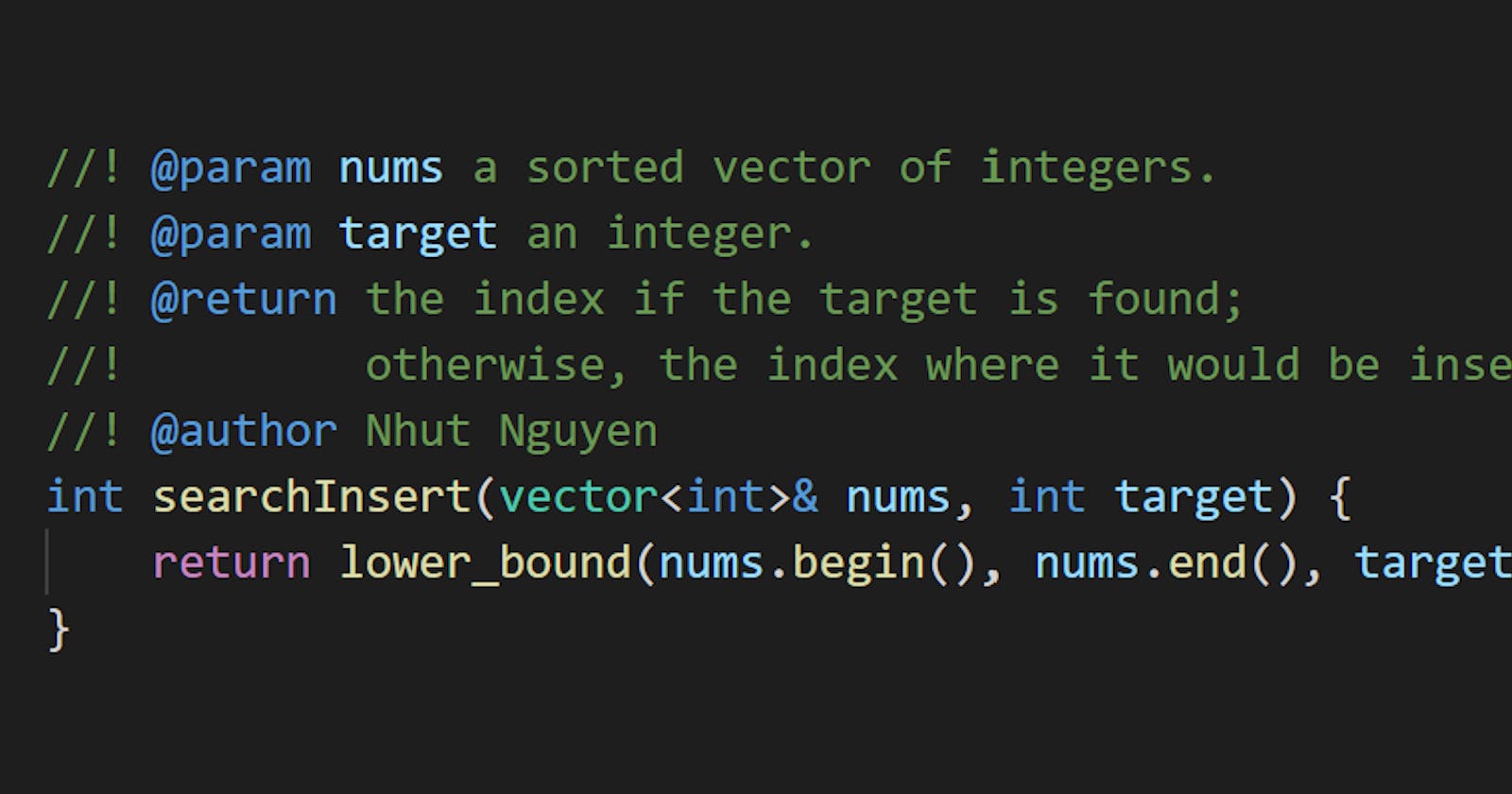Problem statement
Given a sorted array of distinct integers and a target value, return the index if the target is found. If not, return the index where it would be if it were inserted in order.
You must write an algorithm with O(logn) runtime complexity.
Example 1
Input: nums = [1,3,5,6], target = 5
Output: 2
Example 2
Input: nums = [1,3,5,6], target = 2
Output: 1
Example 3
Input: nums = [1,3,5,6], target = 7
Output: 4
Example 4
Input: nums = [1,3,5,6], target = 0
Output: 0
Example 5
Input: nums = [1], target = 0
Output: 0
Constraints
1 <= nums.length <= 10^4.-10^4 <= nums[i] <= 10^4.numscontains distinct values sorted in ascending order.-10^4 <= target <= 10^4.
Solution 1: Binary search
Code
int searchInsert(vector<int>& nums, int target) {
int left = 0, right = nums.size() - 1;
while (left <= right) {
int mid = left + (right - left)/2;
if (nums[mid] == target) {
return mid;
} else if (nums[mid] < target) {
left = mid + 1;
} else {
right = mid - 1;
}
}
return right + 1;
}
int main() {
vector<int> nums = {1,3,5,6};
cout << searchInsert(nums, 5) << endl;
cout << searchInsert(nums, 2) << endl;
cout << searchInsert(nums, 7) << endl;
cout << searchInsert(nums, 0) << endl;
nums = {1};
cout << searchInsert(nums, 0) << endl;
}
Output:
2
1
4
0
0
Complexity
- Runtime:
O(logN), whereN = nums.length. - Extra space:
O(1).
Solution 2: Using std::lower_bound(nums.begin(), nums.end(), target)
The function does exactly what you want for this problem.
Code
int searchInsert(vector<int>& nums, int target) {
return lower_bound(nums.begin(), nums.end(), target) - nums.begin();
}
int main() {
vector<int> nums = {1,3,5,6};
cout << searchInsert(nums, 5) << endl;
cout << searchInsert(nums, 2) << endl;
cout << searchInsert(nums, 7) << endl;
cout << searchInsert(nums, 0) << endl;
nums = {1};
cout << searchInsert(nums, 0) << endl;
}
Output:
2
1
4
0
0
Complexity
- Runtime:
O(logN), whereN = nums.length. - Extra space:
O(1).
